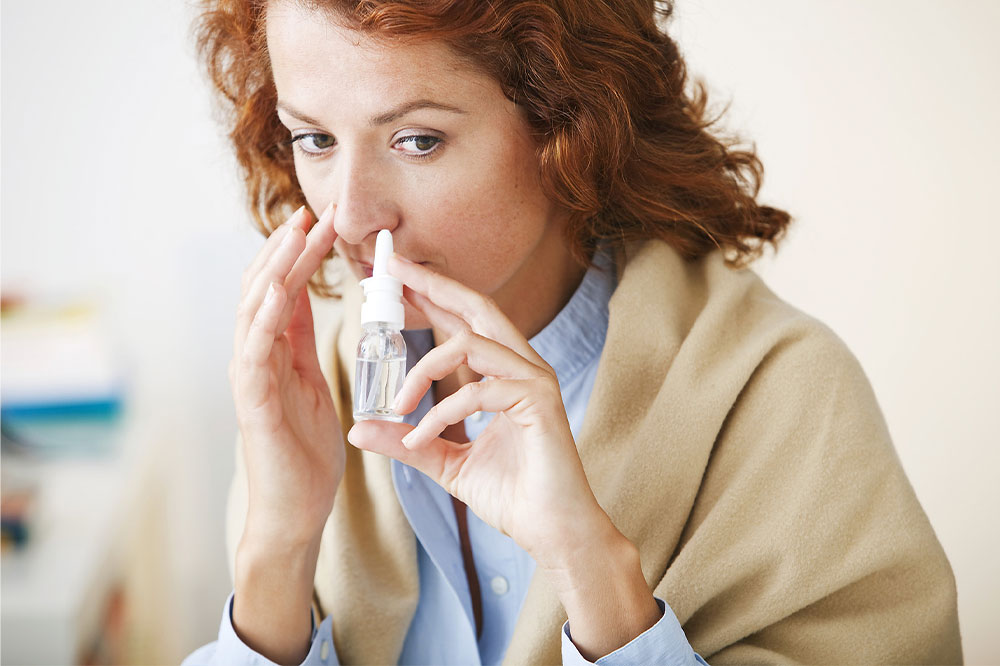
7 ways to get rid of phlegm and mucus buildup
Mucus is an essential part of the human body. It is made by the cells lining the throat, nasal bed, sinuses, and even mouth, has a slippery consistency, and helps with moisturization. Phlegm is a type of mucus made of mucus membranes; it is produced in the lungs and the lower respiratory tract system. The body overproduces phlegm when it is trying to fight inflammation or any bacteria and viruses.
Getting rid of phlegm
The body produces excess mucus and phlegm when you have a cold, your sinuses are irritated, and you have allergies. If there is excess phlegm, in most cases, it can indicate the development of illness or allergies. It is best to get this checked by a healthcare professional. If you still have chronic troubles with excess mucus and phlegm, home remedies that can also help alongside prescriptions. Here are a few of them.
7 ways to get rid of phlegm buildup
Maintain moisture levels
Dry air in the environment can affect, trigger, and irritate your nose and throat, leading to increased phlegm and mucus production for lubrication. But, the increased production can leave you feeling uneasy and uncomfortable. Tackle this by using a cool mist humidifier in your home or workplace. The device can help improve your breathing, sleep, keep your nose clear, and prevent a sore throat.
Stay hydrated
The body needs fluids to keep the mucus thin and healthy. When you are sick with cold or allergies, the mucus in the body becomes thick, crusty, and dry. This can increase inflammation. Staying hydrated can help keep the mucus thin and also help drain the sinuses to prevent inflammation and infection. Individuals who have allergies can also find that staying hydrated can keep the congestion at bay and prevent troubles with breathing.
Keep your head elevated
When there is an increase in the production of mucus in the throat and sinuses, it can be uncomfortable. Your head can feel heavy and uneasy. What you can do to tackle this is sleep on an elevated surface under a few pillows or try using a reclining chair. Lying flat on your back can only increase the discomfort that comes with increased mucus and phlegm production. This is because it feels like it is collecting in the back of your throat or sinuses. What you can also do is try using a hypoallergenic pillow that can reduce the chances of allergies.
Try a nasal spray
Another remedy that can help get rid of phlegm and mucus is a nasal spray or irrigator. These help clear the mucus as well as the allergens from the nasal lining as well the sinuses. You can look for over-the-counter options and try sterile sprays that contain sodium chloride. You can also use sterile or distilled water when you are rinsing to help prevent any infections.
Do not try to suppress a cough
Phlegm-filled coughs can be painful and downright bothersome, tempting one to reach out to a cough suppressant. But, this prevents the bacteria and viruses from leaving the body. Coughing also removes the excess mucus and phlegm built up in the lungs and throat. By stopping it, you can lead to an increased phlegm buildup in the lungs. Thus, use cough syrups as sparingly as possible. Don’t forget to check in with your healthcare professional before using any oral treatments.
Try gargling with salt water
A natural remedy that is used to tackle a sore and itchy throat across the globe is a saltwater gargle. Saltwater is known to soothe an itchy and irritated throat. It also helps clear any mucus and phlegm buildup in the throat. To follow this remedy, all you need is a glass of warm water and a teaspoon of salt.
Use a warm washcloth on your face
An increase in mucus and phlegm production can lead to buildup and blockage of the sinuses, possibly leading to sinus infections known as sinusitis. One of the common signs of a sinus infection is a bad headache that can affect one’s day-to-day functioning. One way to tackle a terrible headache is using a warm and wet washcloth on your face. You can inhale through the cloth as this can help some of the moisture return to the nose and throat and reduce the dryness. The heat from the cloth can also help tackle the pain caused due to the infection.
Don’t forget to check in with your healthcare professional to get rid of a phlegm buildup. They will be able to guide you on what remedies are helpful based on the severity of your condition.




